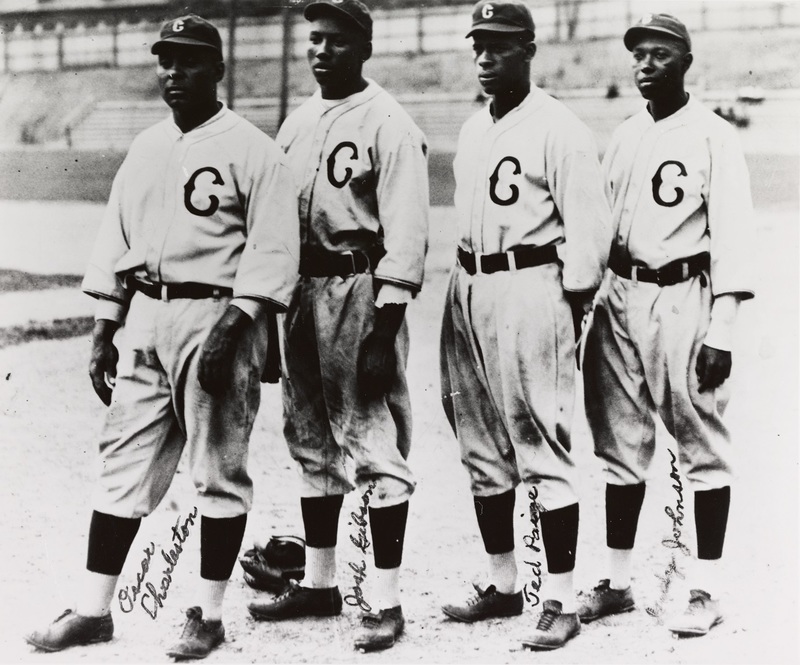William "Judy" Johnson
William Julius “Judy” Johnson was born in Snow Hill, Maryland, in 1899. His family moved to Wilmington, Delaware, when he was five years old. As a child, he was bat boy on his father’s baseball team, the Royal Blues. His father began training him to be a boxer, but Johnson had already grown attached to baseball.
In 1918, Johnson joined the semi-pro ball team the Bacharach Giants of Atlantic City and was paid five dollars a game. The following year, he joined the Madison Stars of Philadelphia, a team that supplied players to the Negro Major League club, the Hilldale Daisies of Philadelphia. The Daisies signed him as their third baseman for $100 in 1919.
Johnson honed his hitting skills and became a leader for Hilldale. In 1929, the leading black newspapers of the day named him the Negro League’s Most Valuable Player. Johnson became the player-manager for the Homestead Grays after the Daisies temporarily folded in 1929. In 1932, he signed with the Pittsburgh Crawfords, now considered one of the best teams ever assembled. After retiring from playing in 1937, Johnson worked at the Continental Cab Company and ran a general store with his brother.
In 1951, he became a scout for the Philadelphia Athletics, and in 1954, he was appointed assistant coach. After scouting for several major league clubs throughout the 1950s and 1960s, Johnson was offered a seat on the Committee on Negro Baseball Leagues to help select black players for induction into the National Baseball Hall of Fame. He stepped down in 1975 when he was nominated by his fellow committee members and became the sixth black player inducted into the National Baseball Hall of Fame.
Judy Johnson died on June 15, 1989, in Wilmington, Delaware.
Life as an African American Ball Player
Johnson and his teammates in the Negro leagues endured many hardships. After long bus rides to games, they were frequently denied service at restaurants and hotels and were not permitted to use public restrooms. On their days off, Johnson and his teammates attended major league games. They never had to pay to sit in on Yankee or A’s games, but when they visited St. Louis, they had to buy tickets and sit in the segregated section, behind chicken wire.
World Series
After the formation of the Negro National League in 1920 and the Eastern Colored League in 1923, many fans hoped the leagues would compete in a championship similar to the World Series. In 1924, the commissioner of baseball, Judge Kenesaw Mountain Landis, helped draft an agreement that laid out the rules for the leagues to hold the first “Colored World Series.” Judy Johnson competed in this first World Series with the Hilldale club.

